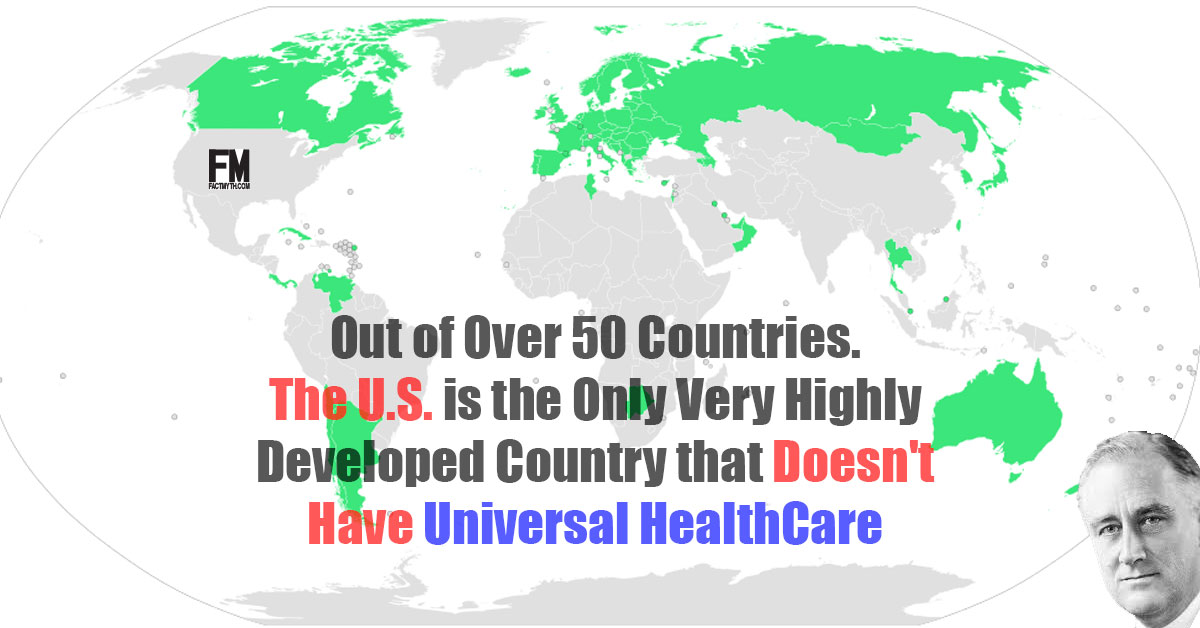Table of ContentsIndicators on Who - Health Policy You Should KnowWhat Does Healthcare Policies - List Of High Impact Articles - Ppts ... Do?Little Known Questions About Current Debates In Health Care Policy: A Brief Overview.
It would support insurance coverage premiums for individuals making up to 400% of the FPL ($ 88,000 http://www.wboc.com/story/42174669/new-podcast-and-video-help-addicts-find-a-great-hialeah-fl-treatment-center for household of 4 in 2010) so their maximum "out-of-pocket" payment for yearly premiums would be on sliding scale from 2% to 9.5% of income. The law also intends to provide incentives for organisations to use health care advantages, forbid denial of coverage and rejection of claims based upon pre-existing conditions, establish health insurance coverage exchanges, prohibit insurers from establishing annual protection caps, and offer assistance for medical research study.

Health care expenses are highly focused with the most expensive 5% of the population accounting for half of aggregate health care spending. The bottom 50% of spenders account for just 3% of healthcare spending. This means that what insurance provider gain from avoiding the ill considerably outweighs any possible gains from handling their care.
Instead of offering health security, the medical insurance market had, considering that the 1970's, started to compete by ending up being threat differentiators. They looked for to just insure individuals with excellent or normal health profiles and leave out those thought about to be or likely to end up being unhealthy and for that reason less profitable. According to a research study from Cambridge Hospital, Harvard Law School, and Ohio University, 62% of all 2007 individual insolvencies in the United States were driven by medical occurrences, with (75% having had) medical insurance.
Government-run exchanges may provide details to facilitate comparison amongst completing plans, if readily available, however previous efforts at creating similar exchanges just produced mixed outcomes. This requirement is expected to decrease the number of the https://northeast.newschannelnebraska.com/story/42159633/rehab-center-provides-tips-for-choosing-the-right-addiction-treatment-center uninsured from 19% of all locals in 2010 to 8% by 2016. Some analysts think that the 8% figure of uninsured are expected to be mostly illegal immigrants (5%), with the rest paying the fine unless excused.
: This image portrays the variety of uninsured Americans and the uninsured rate from 1987 to 2008. Some analysts have actually argued that the insurance premium structure may move more expenses onto more youthful and much healthier people. Roughly $43 billion was spent in 2008 providing non-reimbursed emergency services for the uninsured, which the Act's fans argued increased the https://panhandle.newschannelnebraska.com/story/42268615/addiction-treatment-center-offers-guidance-on-selecting-the-right-rehab-center typical family's insurance coverage premiums.
The research studies recommend that making insurance mandatory instead of voluntary will tend to bring younger, much healthier people into the insurance swimming pool, shifting the cost of the Act's increased costs onto them. The role of public health is to improve the quality of society by safeguarding individuals from illness. Classify the institutions accountable for public health and great governance The dramatic increase in the typical life expectancy during the 20th century is extensively credited to public health achievements, such as vaccination programs and control of lots of contagious diseases.
Not known Factual Statements About United States - Commonwealth Fund
These enhancements included chlorination of drinking water, filtration, and sewage treatment. Public health plays an important function in disease avoidance efforts in both the developing world and in industrialized countries, through local health systems and non-governmental organizations.: Of or relating to public health, the branch of a science dealing with the spread and control of diseases, trojan horse, concepts and so on.
The significant increase in the average life expectancy during the 20th century is commonly credited to public health accomplishments, such as vaccination programs and control of numerous contagious diseases consisting of polio, diphtheria, yellow fever, and smallpox; reliable health and wellness policies such as road traffic security and occupational security; improved family planning; tobacco control procedures; and programs developed to decrease non-communicable diseases by acting upon known threat aspects such as a person's background, way of life and environment - what is a single payer health care system.
These enhancements consisted of chlorination of drinking water, purification, and sewage treatment, which led to the decrease in deaths triggered by transmittable waterborne diseases such as cholera and digestive tract illness. Cutler and Miller in "The Function of Public Health Improvements in Health Advances" demonstrate how typhoid fever deaths in Chicago, Baltimore, Cincinnati, and Cleveland declined after these American cities adopted chlorination, purification, and sewage treatment.
Modern public health is frequently interested in dealing with factors of health across a population. There is recognition that our health is affected by numerous aspects consisting of where we live, genes, earnings, education and social relationships these are understood as the social determinants of health. A social gradient in health goes through society, with those who are poorest usually suffering poor health.
More recent public health policies seeks to attend to these health inequalities by advocating for population-based policies that enhance health in a fair way. Additionally, with the start of the epidemiological shift and as the prevalence of contagious diseases decreased through the 20th century, the focus of public health has actually recently relied on persistent diseases such as cancer and cardiovascular disease (who can be covered by a health care policy).

The World Health Company (WHO) is the global firm that coordinates and acts upon international public health problems. The majority of nations have their own government public health firms, in some cases called ministries of health, to react to domestic health concerns. For instance in the United States, the front line of public health efforts is state and regional health departments.
9 Easy Facts About Health Policy - Wikipedia Explained
In Canada, the general public Health Firm of Canada is the nationwide firm responsible for public health, emergency preparedness and response, and transmittable and chronic disease control and avoidance. The public health system in India is managed by the Ministry of Health & Family Well-being of the federal government of India with state owned healthcare facilities.
One location of fast growth and dynamic change within the health care industry is that of health care policy. how does the health care tax credit affect my tax return. In the existing regulative environment, health care policy is growing to cover everything from the style and implementation of medical insurance plans to the performance and operations of significant medical facilities and the guidelines that keep patients, hospitals, and prescription drugs safe.
For that reason, this area of policy focuses on the style and expense structure of medical insurance strategies, government insurance coverage programs, public health procedures and policies, and guidelines governing the operation of medical facilities and centers. The large bulk of healthcare policy experts work as spending plan or policy analysts within federal or state government.
When brand-new or revised policies are needed, experts will draft proposed modifications that may then be sent to the legislature for evaluation, debate, adjustment, or enactment. Budget analysts also deal heavily with health care policies, though their task is to ensure that these policies are fiscally sustainable over the medium-term and long-term.
The health care industry needs a great deal of its experts, even those who operate in policy rather than in patient-facing positions. To get going in a policy position, experts should have at least a bachelor's degree in public law, public administration, public health, or another field that uses some combination of healthcare and public law skills.
Prospects who wish to enhance their standing for a competitive policy task should also be able to show a postgraduate degree in a field associated to this position. The most common of these is a Master of Public Administration degree, however lots of aspiring policy analysts and budget plan analysts have actually pursued Master of Health care Administration degrees, Master of Accountancy degrees, or perhaps a healthcare-focused MBA.